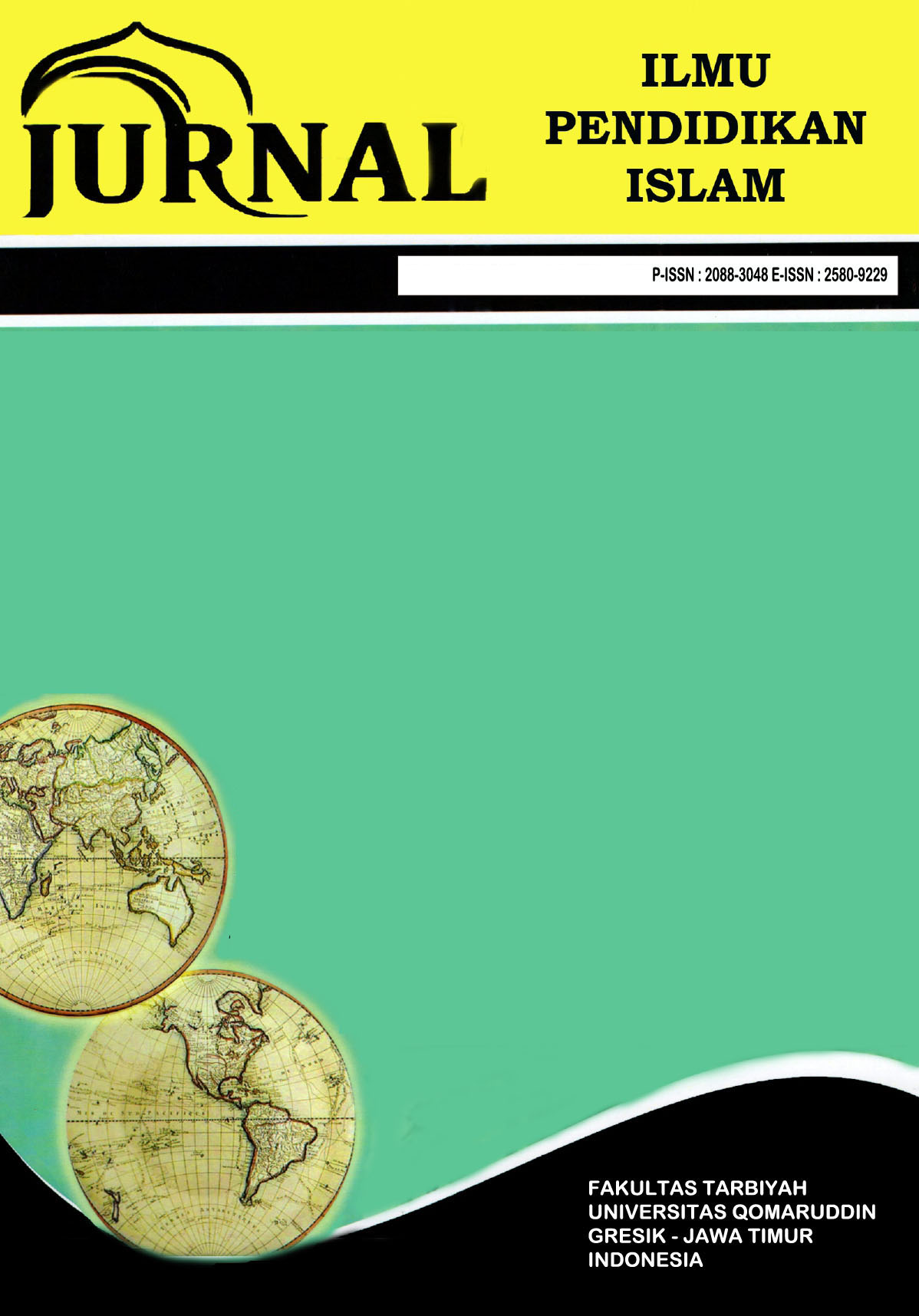Pemikiran Filosofis Pendidikan Ibnu Sina dan John Dewey Terhadap Pendidikan Humanis Perspektif Pendidikan Islam serta Pengaruhnya Terhadap Pendidikan Islam Modern
Abstract
Education has indeed been a form of human effort since ancient times in order to maintain the continuity of their life and culture. Efforts to produce quality education, the stages that are passed start from a strong thinking methodology and a philosophical-epistemological foundation. On the basis of a humanist-religious paradigm that considers common sense, individualism towards independence, pluraslis education, anti-dichotomy, semagat to explore sincere knowledge, functionalism, defeating symbolism, as well as rewards and sanctions. The purpose of Islamic education is to accommodate local culture that is future-oriented, namely religious and modern. This type of research is qualitative research using library research, which is by collecting data through reading and several literature related to the discussion. This type of research uses theories from experts about Islamic Education according to the Philosophical Perspectives of Ibn Sina and John Dewey and its Influence on Modern Education by looking at existing phenomena. As a result of the research that has been carried out, it is known that Islamic Education is a form of effort to create and shape good and meaningful human beings in world life. Education is conceptually based on ideological-philosophical foundations for its implementation in the social-bidaya sphere. According to Ibn Sina, the purpose of education must be directed to the development of the full human potential towards full development: physical, intellectual, and moral development. John Dewey views education as the process of forming basic skills, both in terms of thinking (intellectual) and feeling (emotional), that connect with humanity and ordinary people. Based on this, the philosophy of education can also be interpreted as a theory of general education. John Dewey explained that education is the rearrangement and rearrangement of experiences and events in a person's life to become more directed and meaningful
References
Arifin, N. (2020). Pemikiran Pendidikan John Dewey. As-Syar’i: Jurnal Bimbingan & Konseling Keluarga, 2(2), 204–2019. https://doi.org/10.47476/as.v2i2.128
Mualifah, I. (2013). Progresivisme John Dewey Dan Pendidikan Partisipatif Perspektif Pendidikan Islam. Jurnal Pendidikan Agama Islam, 1(1), 101–121.
Mubarok, R. (2015). Pendidikan Humanis John Dewey dalam Perspektif Pendidikan Islam. J-PAI: Jurnal Pendidikan Agama Islam, 2(1), 1–21.
Mughni, M. S., & Bakar, M. Y. A. (2022). Studi Aliran Filsafat Pendidikan Islam Serta Implikasinya Terhadap Pengembangan Pendidikan Islam. DIRASAH, 5(1), 81–99. https://ejournal.iaifa.ac.id/index.php/dirasah
Putra, A. T. A. (2015). Pemikiran Filosofis Pendidikan Ibnu Sina Dan Implikasinya pada Pendidikan Islam Kontemporer. Jurnal LITERASI, VI(2), 191–201.
Rama, B., Mahmud, M. N., & Ya’kub. (2023). Filsafat Pendidikan dalam Perspektif Islam. Jurnal Pilar: Jurnal Kajian Islam Kontemporer, 14(2), 163–175.
Rasyid, I. (2019). Konsep Pendidikan Ibnu Sina tentang Tujuan Pendidikan, Kurikulum, Metode Pembelajaran, dan Guru. EKSPOSE: Jurnal Penelitian Hukum Dan Pendidikan, 18(1), 779–790. http://jurnal.iain-bone.ac.id/index.php/ekspose
Ruhaya, B. (2022). Fungsi Filsafat Pendidikan Terhadap Ilmu Pendidikan Islam. Jurnal Inspiratif Pendidikan, 11(1), 185–195. https://doi.org/https://doi.org/10.24252/ip.v11i1.31211
Saragih, H., & dkk. (2021). Filsafat Pendidikan (A. Karim, Ed.; Cetakan 1). Yayasan Kita Menulis.
Syahputra, A. A. (2021). Kajian Analisis: FIlsafat Pendidikan Pada Pemikiran Ibnu Sina. JIM: Jurnal Ilmiah Mahasiswa Pendidikan Sejarah, 6(1), 36–41.
Wulandari, T. (2019). Teori Progresivisme John Dewey Dan Pendidikan Partisipatif dalam Pendidikan Islam. At-Tarbawi: Jurnal Kajian Kependidikan Islam, 4(2), 71–86. https://doi.org/10.22515/attarbawi.v4i2.1927
Copyright (c) 2024 C Adhi Nugroho, Mukh. Nursikin

This work is licensed under a Creative Commons Attribution 4.0 International License.





